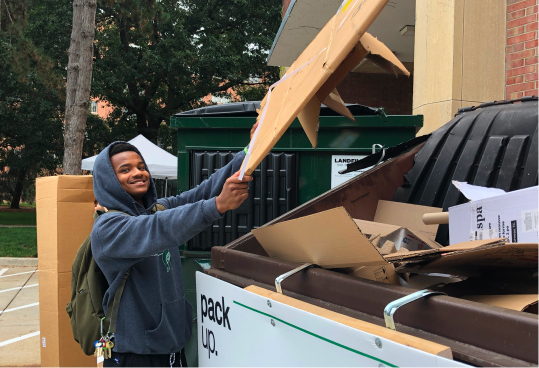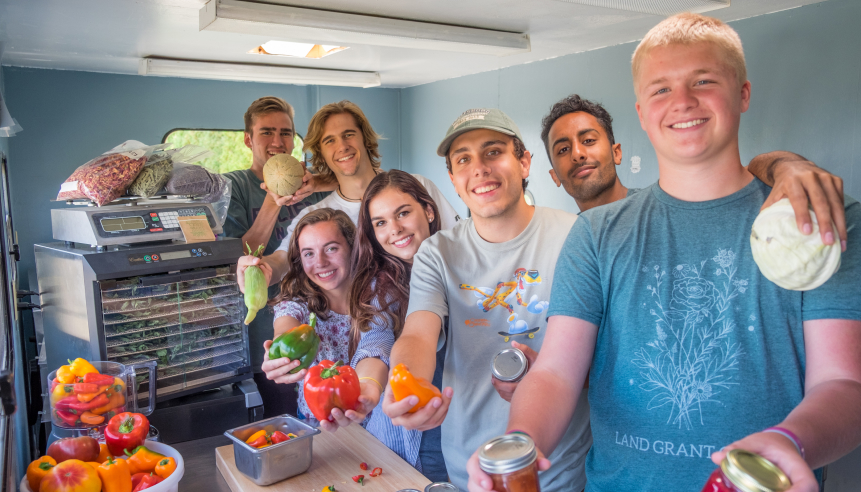MSU Student Organic Farm
MSU's Student Organic Farm provides student-led, campus-grown and certified organic produce to MSU dining halls while also providing a location for sustainable agriculture research, composting, beekeeping, and a year-round Organic Farmer Training Program that educates participants on organic farming principles and practices.
Bailey GREENhouse and Urban Farm
The Bailey GREENhouse and Urban Farm, located at Bailey Hall, works in conjunction with Residential and Hospitality Services, the MSU Student Organic Farm and the Residential Initiative on the Study of the Environment as a student-led hoop house that grows mixed greens, spinach, herbs, and varying fruits and vegetables for dining halls.
MSU Dairy Store
Providing the MSU community with legendary ice cream and unique cheeses, the MSU Dairy Store makes, packages and sells their products at their Anthony Hall location. With consideration to the challenges of food safety and health, critical research is constantly underway at the dairy laboratories to ensure industry growth and improvement.
MSU Beef and the MSU Meat Lab
Served in dining halls, MSU Beef is raised and processed entirely in Michigan through a partnership with MSU's Department of Animal Science. Spartans can also purchase meat products from the MSU Meat Lab.
Local and Regional Food Sourcing
In accordance with the Cultivate Michigan challenge to source 20% of food products from Michigan growers, producers and processors by 2020, MSU has developed key partnerships with over 150 local vendors and over 300 regional vendors.

